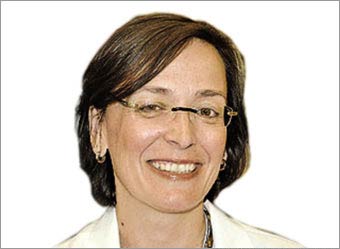Katya Tsaioun, 44
Watertown, Mass.
Lesson: Help investors see that taking a chance on you is not that big a risk after all
Katya Tsaioun saw her perfect business perfectly clearly, but to the investors she approached, it might as well have been a mirage. Banks pointed out that as a scientist, she had never run a business. Venture capitalists assured her that the drug-testing company she wanted to start would never grow fast enough. "There was a lot of skepticism," she recalls.
But Tsaioun saw an opportunity in pre-clinical testing on new drugs for big pharmaceutical companies. It was work she had spent a decade doing, including at her most recent job, where the entire R&D team had been laid off after a drug flopped. In what she considered a stroke of luck, at the same time she found used equipment for sale - for $200,000. With that she could open shop.
Brainstorming with her husband Doug Bates, Tsaioun tried to figure out how to sell her concept. After all, she had no prototype to show investors, no sketches. The novel strategy that Bates and Tsaioun came up with to bankroll her venture was this: Have funders - mainly relatives and her husband's friends - buy the equipment and then sell it back to her over the next five years. On top of principal payments, she offered them 15% interest and assured them that if her company went kaput, they could recoup more than half of their investment by reselling the equipment. "The downside was not bad for them," she says. Not that they've had reason to think about reselling the equipment. With revenue hovering around $1 million, Tsaioun's company, Apredica, is expected to turn a profit this year.

